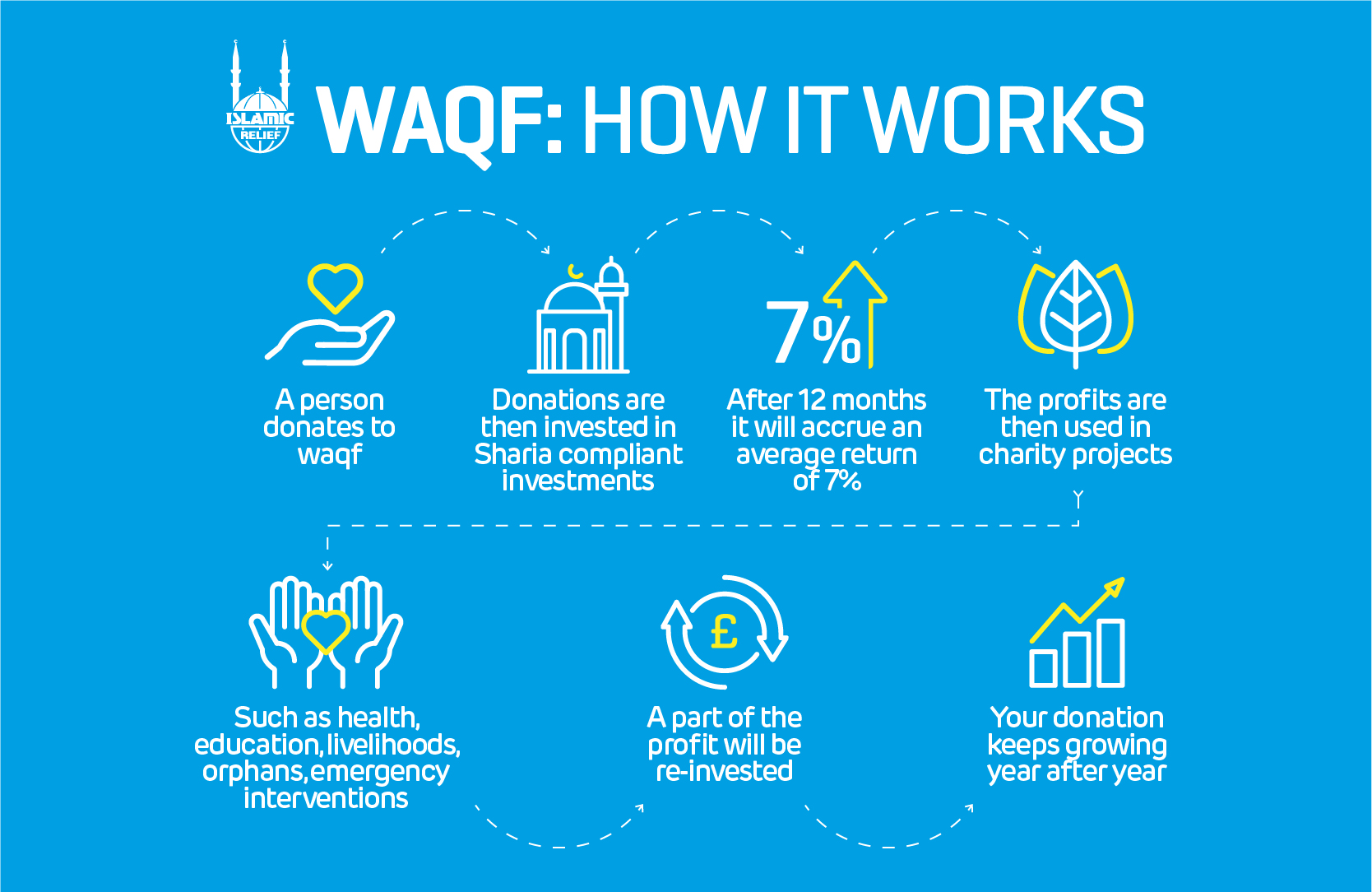Wakaf (Waqaf) in the Quran
It is not explicitly prescribed in the Qur’an, however charity is.
Building on the importance of Zakat as a pillar of Islam and the need to give in charity, Wakaf (Waqaf) can be considered in comparison to Sadaqah – including Sadaqah Jariyah.
Hadith emphasise the importance of the Islamic duty to give in charity.
The Prophet (SAW) said:
“When a person dies, all their deeds end except three: a continuing charity, beneficial knowledge and a child who prays for them.” [Muslim]
In light of this, Wakaf (Waqaf) investments are an important part of Islam and many examples can be found throughout Islamic history.
Types of Wakaf (Waqaf)
Waqfs can be used for a range of purposes for the benefit of a community, including:
- Learning institutes – schools and universities
- Plots of land
- Mosques
- Offices
- Hospitals – including doctors’ salaries, medicine, equipment and repairs
- Medical schools – including building maintenance and salaries
The investments must be for the benefit of the public.
Invest in your future and help save lives.

